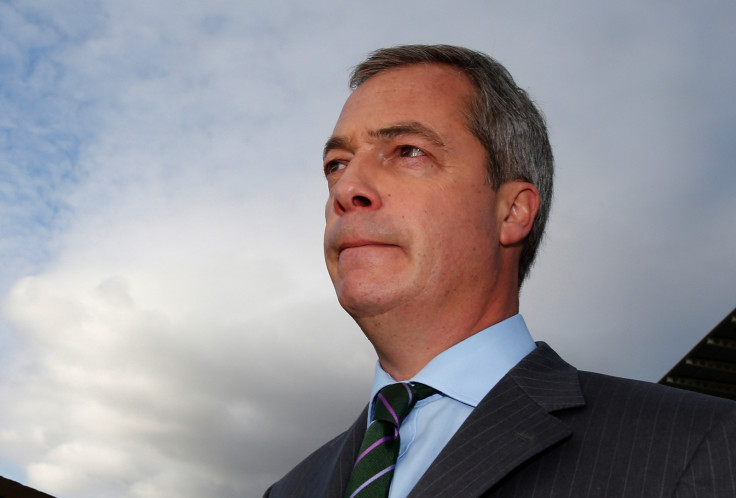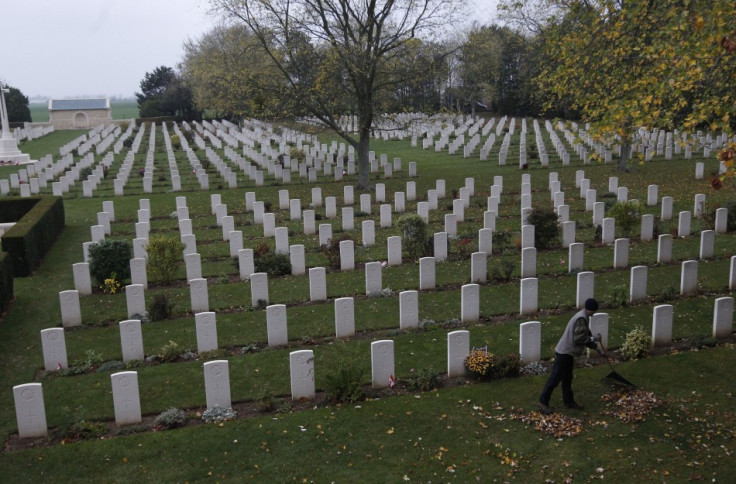Ukip Leader Nigel Farage: The Armistice Created Hitler and it Was the Biggest Mistake of the 20th Century
Most people, from John Maynard Keynes and AJP Taylor to pretty much all history teachers today, tell us that the seeds of World War II were sown by the Treaty of Versailles.

They were sown, we are told, by Clemenceau, the French president, Le Tigre. He felt very aggrieved -- quite rightly -- about what the Germans had done to his country and his people, and was desperate for a treaty of recrimination.
Everyone took the view that Versailles was too harsh. The view was certainly held by Churchill, who on VE day talked about being magnanimous in victory. We understood that, when you've beaten somebody, don't kick him when he's down -- give people a chance.
The consensus is that the Treaty of Versailles was too punitive. It led directly to German hyper-inflation, which in turn led to seven million unemployed, and which in turn led to National Socialism.
But I don't actually think Versailles was the mistake. I believe the real mistake, the anniversary of which we remember today, was the Armistice.
In 1918 Lloyd-George was absolutely sick to death of the war, and hated sending out thousands of eighteen-year-olds to Haig every months. The French had had enough a long time before – they were ceasing to operate as an effective army.
But what those war-weary governments did, in that railway carriage in Compiegne, was allow the Germans a dignified, an honourable way out. And that, I think, that was the biggest mistake of the entire 20<sup>th century.

Only one man at the time realised the magnitude of the mistake being made, and that was General Pershing, who was in command of the American troops. If you read Pershing's diary, he writes on 11 November 1918: "We are making a terrible mistake. I think we'll all be back here in 20 years." In fact it took 21.
I believe we should have continued with the advance. We should have pursued the war for a further six weeks, and gone for an unconditional surrender. Yes the last six weeks of the war cost us 100,000 casualties, and I'm prepared to accept that a further six weeks of war might have cost us another 100,000.
But had we driven the German army completely out of France and Belgium, forced them into unconditional surrender, Herr Hitler would never have got his political army off the ground. He couldn't have claimed Germany had been stabbed in the back by the politicians in Berlin, or that Germany had never been beaten in the field.
The reason Hitler got his party off the ground, got the myth of the stab in the back off the ground, was because he had Ludendorff, the German commander in chief, marching through the streets in support of him in 1923.
It was Ludendorff who gave Hitler credibility. Yet none of this would happened if someone had made Ludendorff surrender unconditionally.
How would I have handled things if I'd been Lloyd-George in November 1918? I can't answer that. Lloyd-George and the war cabinet were understandably sick of the war. This misery had gone on for four years. The French were desperate for it to be over. It was their country that was being ravaged. There was this great desire to get it over with.
But what I believe very passionately is that the refusal to push for unconditional surrender was a desperate, desperate mistake. With another five or six weeks, particularly at the rate at which we were pushing the Germans back, unconditional surrender would have been straightforward.
And, had we taken that course of action, there would have been no Hitler.
Nigel Farage was giving the Olsen Lecture at London's St Bride's Church. His speech discussed the 'myths' of the First World War and discussed the impact of the conflict on both Britain and Europe.
© Copyright IBTimes 2025. All rights reserved.




















